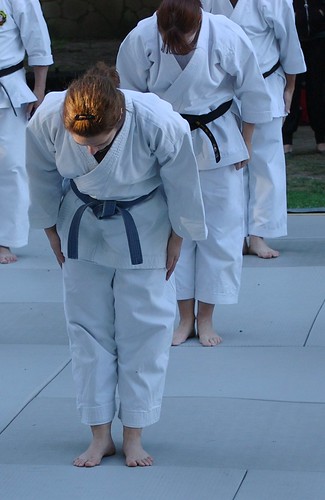Why Conflict Is Good For You
by Gina Simmons, Ph.D.
History provides some great opportunities to learn the lessons of conflict. In 1961, U.S. trained and equipped soldiers attempted to overthrow the communist government of Fidel Castro’s Cuba. Then President John F. Kennedy made the decision to invade, after consulting subordinates eager to please him. Knowing that the president wanted to do something about Cuba, the team developed a plan of invasion without considering all of the ramifications, or even alternative ways of coping with the problem. This disastrous invasion nearly led to nuclear war with Russia. Psychologists studied this decision-making process and labeled it “groupthink”. “Groupthink” occurs when members of a group fail to question assumptions and take a biased, narrow view of a problem, without consideration of broader opinions or moral consequences.
Conflict Helps You Make Smarter Decisions
Yale Psychologist, Irving Janis, researched “groupthink” to find out how some of the smartest people in the world can make stupid decisions. Fortunately for the world, Kennedy learned from his mistakes. Shortly after the Cuban Missile Crisis of 1962, Kennedy assembled a team, the Executive Committee of the National Security Council or EXCOMM. He included his brother, Attorney General Robert Kennedy, tasking him with the role of Devil’s Advocate. Robert Kennedy challenged the committee to discuss and debate various strategies. JFK removed himself from the committee process to avoid influencing the group discussions. As a result relations with Russia improved and nuclear war was prevented.
Every organization needs Devil’s Advocates to prevent the tendency to come to quick decisions without considering unintended consequences. These people play the role of conflict creator. Tired from a long day of meetings, the group wants to just make a decision and move forward. But that irritating Devil’s Advocate asks, “What do we do if that doesn’t work?” “Ugh!” the group collectively exclaims. “We all believe this plan will work, why can’t you just go along?” Organizations that fail to consider the concerns of the Devil’s Advocate, often find themselves unprepared for the consequences of poor planning and hasty decision-making.
Conflict Humbles You and Makes You Stronger
Ping Fu, co-founder of Geomagic and honored in 2005 by Inc. Magazine as “The Entrepreneur of the Year,” writes about a time when she resisted the pressures of groupthink and saved her company. In her must-read memoir, Bend Not Break: A Life in Two Worlds, she writes about a time when her company faced two potentially ruinous lawsuits. Instead of fighting the lawsuits as advised, she decided to meet directly with her opponents to determine what they needed to drop the suits. Ping Fu humbled herself by sharing with her opponents her companies’ vulnerability. By doing this she learned that they did not want to ruin the company. Instead, they were interested in patents and protections for themselves. Ping Fu negotiated a settlement and her company achieved huge success. Her potential enemies became allies. Facing the conflicts made Ping Fu and her company stronger.

Conflict Helps You Make More Accurate Predictions
Neuroscience researchers discovered that people tend to overestimate the likelihood of positive events happening to them (winning the lottery for example) and underestimate the chances of something bad happening (like getting cancer). We like to day-dream about winning the lottery because it tickles the reward center of our brain, even though it’s statistically more likely that we’ll get cancer. This leads to poor predictions about the future. You might feel less motivated to buy long-term care insurance than you are to invest in a sexy IPO stock, even though the insurance will statistically be more likely to pay off.
Conflict Leads To Better Sex
Couples who avoid conflict nearly always experience passionless relationships. When a couple in my counseling office tells me that they never argue, the next question I usually ask is “When is the last time you had sex?” The professor who taught my graduate class in Human Sexuality said, “Without friction, there is no orgasm.” That statement works both literally and figuratively. In all organizations ranging in size from a couple all the way up to a nation, there seems to be a sweet spot where just the right amount of conflict helps to prevent stagnation, stimulate growth and strengthen cohesiveness. Too much conflict destroys cooperation and threatens stability. Too little conflict creates narrow-minded conclaves of stagnant dreariness.
The next time you feel the desire to shut down an employee who opposes your idea, or the next time your partner questions your judgment, or the next time your mother complains that you never call, pause, take a deep breath and say, “Thank you for sharing that.” Then take a moment to find the value in that perceived obstacle to your happiness. It will help you make better decisions, predictions and love. Expert conflict manager, Thich Nhat Hanh writes, “For things to reveal themselves to us, we need to be ready to abandon our views about them.” Usually it takes that pesky Devil’s Advocate, or our spouse, to point out our blind spots. To my dear husband I say, “Thank you honey for sharing that.”
Photos courtesy of: Tedx Pioneer Valley 2012, blmurch.


This is a wonderful, thoughtfully written article with so many helpful ideas. Thank you for writing it!